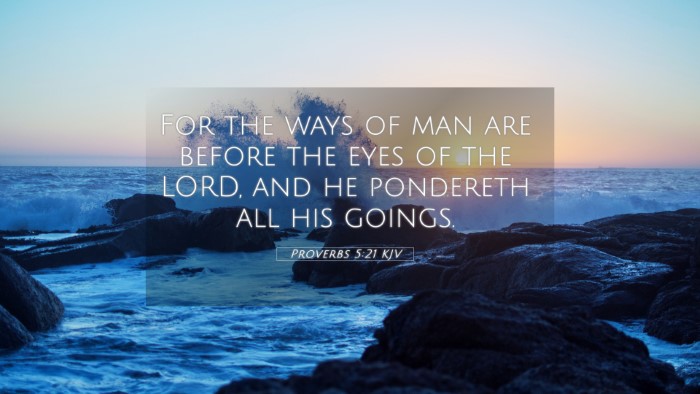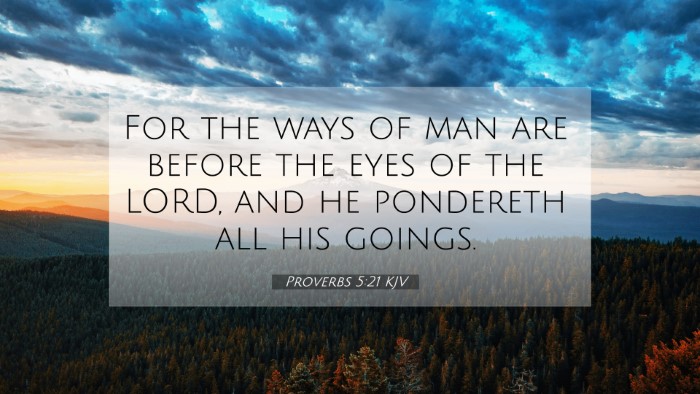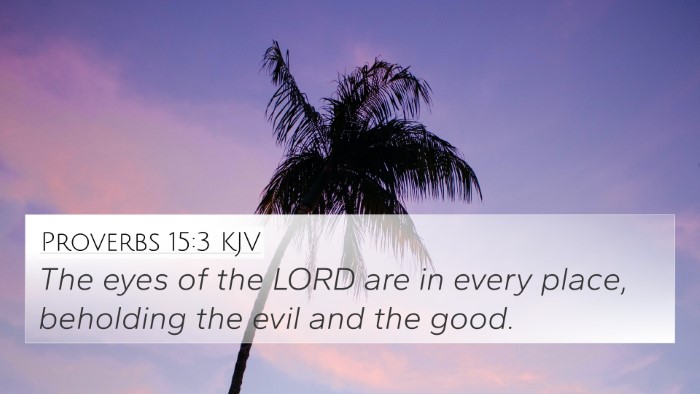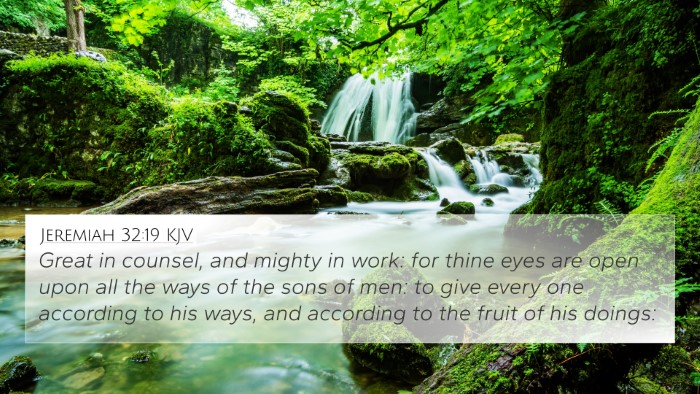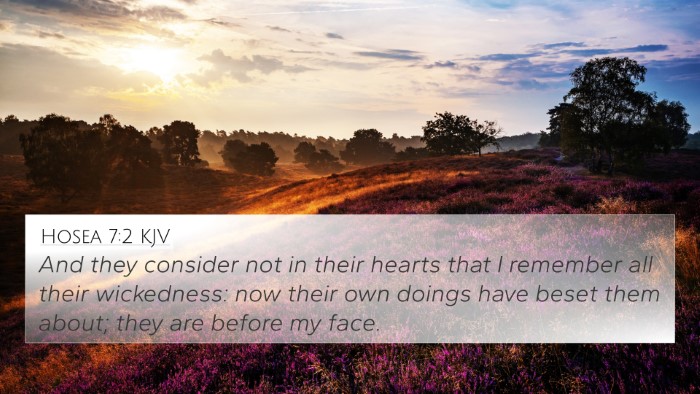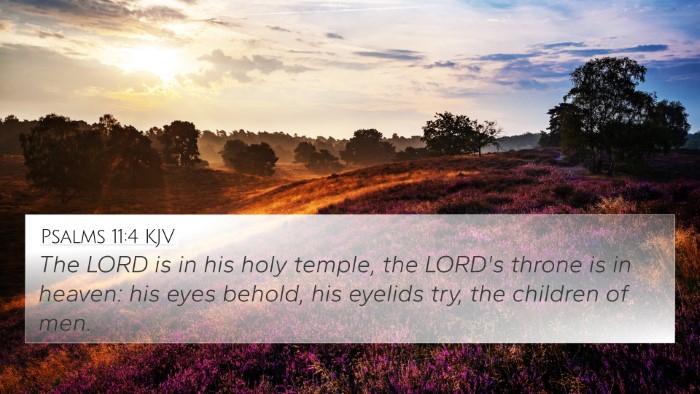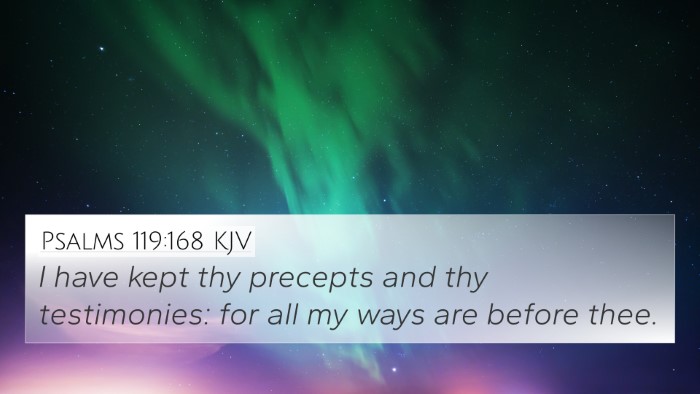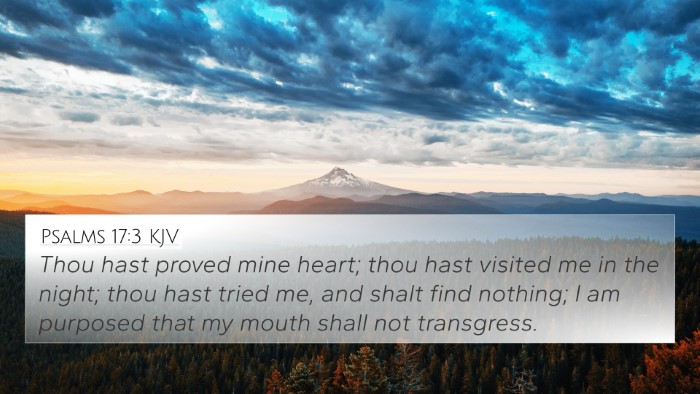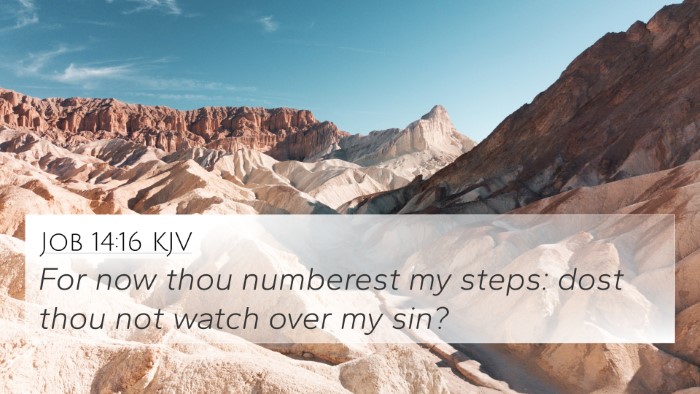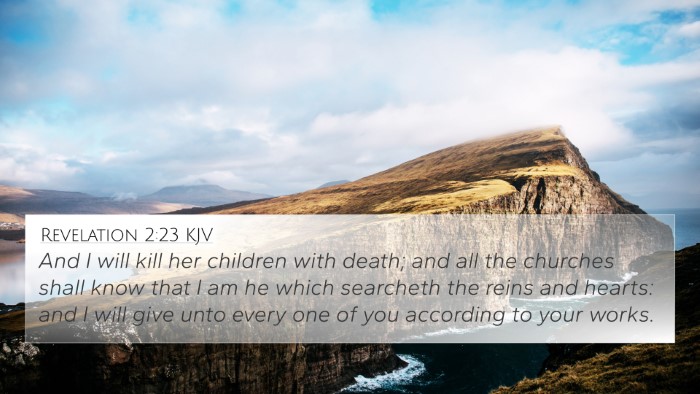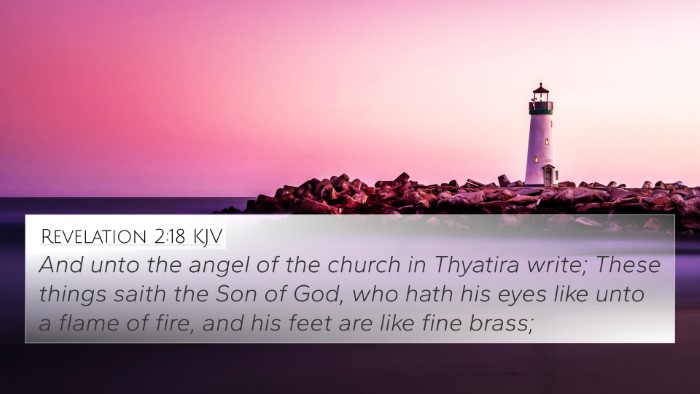Understanding Proverbs 5:21
Proverbs 5:21 states: "For a man's ways are before the eyes of the Lord, and he ponders all his paths." This verse serves as a reminder of God's omnipresence and omniscience, emphasizing that nothing escapes His attention. Various public domain commentaries offer insights that deepen our understanding of this passage, highlighting its themes of moral conduct, divine accountability, and the importance of righteous living.
Key Themes:
- Divine Oversight: The verse emphasizes that God sees all actions. As Matthew Henry notes, this serves as both a comfort and a caution to believers, encouraging them to live with integrity.
- Moral Reflection: Albert Barnes interprets the phrase "he ponders all his paths" as a call to self-examination. Individuals are urged to reflect on their choices and the direction of their lives.
- Consequences of Actions: Adam Clarke points out the inherent consequences of one’s actions, suggesting that understanding God’s watchfulness prompts one to consider the outcomes of their choices.
Related Bible Verse Cross-References:
- Hebrews 4:13: "And no creature is hidden from his sight, but all are naked and exposed to the eyes of him to whom we must give account."
- Proverbs 15:3: "The eyes of the Lord are in every place, keeping watch on the evil and the good."
- Jeremiah 16:17: "For my eyes are on all their ways; they are not hidden from me, nor is their sin concealed from my eyes."
- Psalm 139:1-4: "O Lord, you have searched me and known me! You know when I sit down and when I rise up; you discern my thoughts from afar."
- Galatians 6:7: "Do not be deceived: God is not mocked, for whatever one sows, that will he also reap."
- Proverbs 4:26: "Ponder the path of your feet; then all your ways will be sure."
- Ecclesiastes 12:14: "For God will bring every deed into judgment, with every secret thing, whether good or evil."
Commentary Insights:
This passage serves as a powerful reminder of the need for accountability in one’s daily life. Each commentary brings forth the idea that our actions are not simply personal; they are observed by God and have lasting implications on our spiritual journey. The authors encourage readers to cultivate mindfulness regarding their behavior and decisions in light of God's omniscient presence.
Practical Applications:
- Engage in regular self-reflection to evaluate your actions and motivations.
- Integrate prayer into your decision-making processes, seeking divine guidance.
- Foster a sense of awareness about the consequences of your choices on yourself and others.
- Utilize scripture as a guide for your moral decisions and lifestyle choices.
- Stay connected with a community that encourages accountability and growth in faith.
Conclusion:
In understanding Proverbs 5:21, we see that the interconnectedness of biblical themes serves to deepen our insights into God's nature and our own responsibilities. By examining cross-references like those found in Hebrews and Jeremiah, we can build a more comprehensive view of accountability in our spiritual lives. This understanding empowers us to live with intention, aware of the presence of God in our everyday choices.
As you study the scripture, consider adopting tools for Bible cross-referencing such as a Bible concordance to uncover connections between Bible verses that enrich your study and provide a fuller understanding of divine principles.

